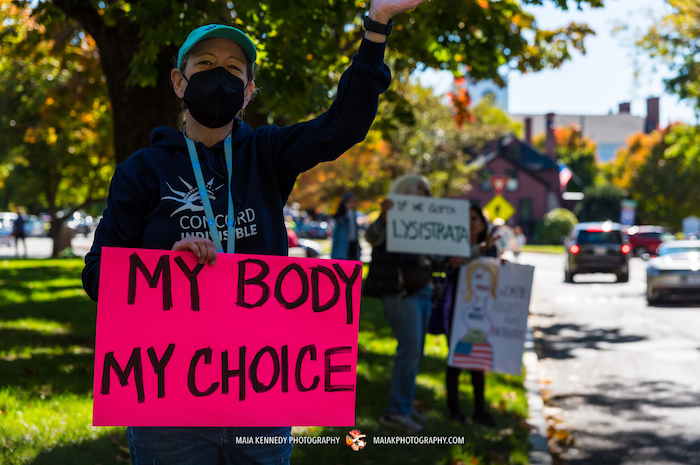Ban on medication abortion threatens reproductive freedom across the U.S.
by Anita Saville
This should come as no surprise. Once the Supreme Court threw precedent to the wind, reversed its 1973 decision in Roe v. Wade, and drastically restricted access to surgical abortions, it was only a matter of time before misogynistic officials would go after medication abortions. Such abortions, which generally involve taking two pills, at a time and place of one’s choosing, now account for more than half of all abortions in the U.S. They are a highly effective way to end pregnancies in the first couple of months, when most abortions occur.
If anti-abortion groups win their suit in federal court against the FDA, over its approval of mifepristone for medication abortions, this very safe, low-cost option would no longer be available to pregnant persons in blue states as well as red. So much for letting individual states control access to abortion.
Walgreens caves in. California fights back.

Access to mifepristone is already shrinking. Following a letter from a group of extremist Republican attorneys general threatening civil suits and criminal charges against companies that fill prescriptions for mifepristone, Walgreens, the country’s second largest pharmacy chain, announced that it would not dispense the medication in 21 states — including four where distribution of mifepristone remains legal.
This prompted pro-choice California to declare it would sever state contracts with the company. Nearly two dozen Democratic AGs sent their own letter to Walgreens, and filmmaker Michael Moore, among others, called for a national boycott of the company. Walgreens later clarified that it would sell mifepristone “in any jurisdiction where it is legally permissible to do so.” But many questions remain about what that means, exactly.
“Each day, women’s lives are threatened because they are denied access to essential health care,” MA Senator Elizabeth Warren and five colleagues said in a recent letter to the company. The senators asked Walgreens to answer several questions this week — including specifically how it will deal with the four states in dispute and five others with pending court cases for medication abortions.
It’s time to act.
This will be a long, ugly battle. And we must fight back quickly and nimbly, as the legal landscape evolves. (The suit against the FDA comes before the U.S. District Court in Texas this week, and the outlook does not look promising.)
Let’s start by putting pressure on Walgreens — which may make other large drugstore chains rethink their plans to abandon mifepristone. Here are multiple actions endorsed by Concord Indivisible’s Steering Committee and the Feminist Action Team of the Indivisible Massachusetts Coalition:
- Use these templates provided by Greylock Together, an Indivisible group in Williamstown, MA, to contact Walgreens executives and urge MA legislators and Governor Healy to follow California’s lead
- Sign a MoveOn petition demanding all pharmacies provide this care HERE
- If your own insurance situation permits, send a letter through DemCast to Walgreens closing your account HERE.
- Find all of the Walgreens pharmacies near you and pledge to boycott them through Women’s March HERE.


Leave a Reply